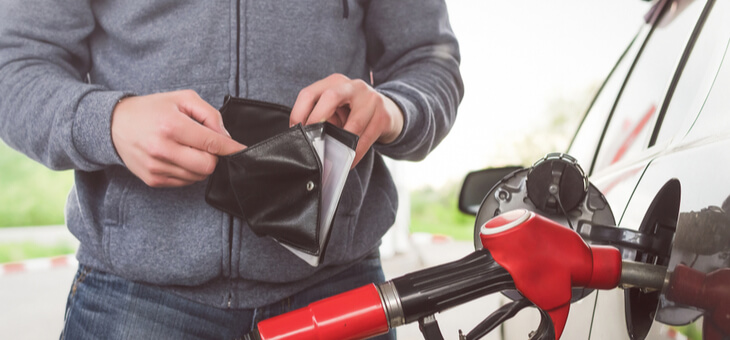A war half a world away is driving up fuel prices and despite government intervention, consumers can expect more pressure on their wallet with petrol tipped to hit $2.50 a litre.
The federal government has agreed to release part of its fuel stockpile in a bid to stabilise global energy markets, but Australia will share in little of that bonus as the release will be on to the world market and not into Australian refineries.
Petrol prices have increased by about 19 per cent since December and by about 25 per cent over the past 12 months. Some outlets are already charging more than $2 a litre.
Public holidays don’t help. Fuel companies seem to love to lift prices around those times and we have Labour Day (for some), Easter and Anzac Day in quick succession in coming weeks.
Read: Petrol prices soar, pushing up living costs
AMP chief economist Shane Oliver says the high petrol prices have added about $15 a week to the average Australian household’s petrol bill since December.
“If sustained, that’s a big $750-a-year hit to real household spending power, to which must also be added all the indirect ways higher oil prices boost prices,” Dr Oliver told The Age.
But there may be relief in sight – eventually.
Curtin University energy economist Roberto Aguilera said he expected petrol prices to start easing by mid-year as oil-producing nations worldwide increased production in response to high prices.
“That will mostly come from the US, but also most of the important oil-producing regions of the world, including the Organization of Petroleum Exporting Countries, have an agreement in place to steadily raise the monthly production through 2022,” Dr Aguilera said.
“The result of all this should be some downward pressure on oil prices and consequently on petrol, which should eventually help bring relief to drivers.”
Read: Share market turmoil rocks nest eggs
The high fuel costs are having an impact on inflation, with some economists predicting the central bank will be forced to lift the cash rate as early as June.
Prices have been rising steadily since the pandemic started, with fuel companies trying to claw back profits lost during lockdowns.
But why are petrol prices rising in Australia when we buy almost exclusively from Singapore, Korea and Japan?
Even though Australia buys hardly any oil from Russia, the market operates as a single pool and any price rises across the globe will be felt in Australia.
US President Joe Biden has convinced many countries, including Australia, to release their strategic reserves in an effort to slow rising prices. The International Energy Agency (IEA) has negotiated with participating countries to add about 60 million barrels to the supply chain.
However, while that may sound a lot, it’s only 60 per cent of a single day’s oil consumption and may not even dent prices.
CommSec chief economist Craig James told The New Daily that oil prices continued to rise after the announcement, a sign that the markets saw little merit in the plan.
Also putting pressure on supply – and, in turn, prices – is what The Oxford Institute for Energy Studies calls ‘self-sanctioning’.
Read: Putin puts the world on high alert
The US and European sanctions initially targeted Russia’s economy, but not energy trade flows. However, there are reports of ports independently turning away Russian tankers and financial institutions refusing to open lines of credit so trading companies can bid on Russian oil. Some trading houses have been offering Russian cargoes at very large discounts but finding no buyers.
Even if the reserve release works, traditionally any change in the price of oil takes about two weeks to flow through to bowsers, so prices might get higher before they get better.
In a press release announcing the plan, industry, energy and emissions reduction minister Angus Taylor said the release would build confidence in the market and stabilise prices.
“We know Australian families and businesses have been feeling this pressure at the pump, so we hope this action will ease prices,” he said.
Details of the oil release are expected to be made public within a week.
If you enjoy our content, don’t keep it to yourself. Share our free eNews with your friends and encourage them to sign up.

